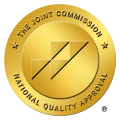Ways to Reduce the Impact of Shame on Your Patients
Article Contents
Introduction
Shame is one of the most corrosive human emotions. Shame is frequently expressed and experienced in psychotherapy. It is a painful emotion that leaves patients feeling like they are not good enough or are unworthy.
Toxic shame, which is shame that lingers and begins to contaminate the way a person sees themselves, can have a dramatic negative impact on a patient’s life, including their physical and mental health. Toxic shame can also get in the way of therapy.
What is Shame?
The shame meaning is defined as “the painful feeling arising from the consciousness of something dishonorable, improper, ridiculous, etc., done by oneself or another.”1 Shame is associated with many negative emotions, such as feelings of anxiety, depression, and low self-esteem in addition to substance use and suicidal behaviors. Living with shame can be lonely and demoralizing. Thankfully, several things can be done to minimize the impact of shame on your patients.
Shame vs Guilt
Sometimes people use the terms “shame” and “guilt” interchangeably, but the two are not the same from a psychological perspective. Guilt and shame refer to different experiences. While guilt is associated with negative feelings about an act one has committed, shame involves negative feelings about oneself.
Discussing shame vs. guilt in treatment is important when it comes to a patient’s success. Dwelling on feelings of being ashamed can lead to destructive behaviors and self-punishment. Shame is not productive to recovery as a person feels they need to punish themselves or someone else to cope with it.
Guilt can be helpful during recovery, though. Feelings of guilt are a sign that someone is going through a healthy recovery process, taking ownership of their behaviors with a willingness to reverse them.
What does Shame Look Like?
Shame can be experienced quietly. It is not always evident that someone is battling shame. There are several hallmarks of feeling ashamed.
Physical signs of shame may include looking down, slumped shoulders, avoidance of eye contact, hesitant patterns of speech, and lowering one’s head.
Other symptoms of shame may include:
- Wanting to Disappear: Shame causes people to want to disappear, pulling out of connection with others.
- Anger: A person dealing with shame may blame someone else rather than thinking they have done something wrong. Anger mitigates these feelings. For example, when a parent yells at a teenager for doing wrong, the teenager might run to his room and slam the door. The teen’s anger is covering up his feelings of shame.
- Addiction: The desire to abuse substances like drugs or alcohol can provide temporary relief from shame. However, the combination of substance use and shame can become a vicious, downward cycle.
- Self-blame: Thinking thoughts like “I am such a horrible person,” or “I should just give up on everything,” are signs that a person is dealing with shame.
People who feel ashamed may also avoid relationships and community, to self-conceal, may strive to suppress their emotions,2 or may be more likely to relapse back into problematic behaviors.3
How Shame Affects Health
Shame is a powerful emotion that can have a significant impact on a person’s health. Shame may shut down a person’s emotions, thus shutting down the body and even triggering the nervous system to perceive a potential threat.
This trigger can put the person into a fight or flight response, making the primary focus survival. Survival mode is not meant for long periods and can push the body further than what is healthy, meaning the body cannot properly heal.4
Shame and Addiction
When it comes to recovery from addiction, being ashamed can be a significant risk factor and affect every step in the recovery process. Shame may keep a person from reaching out for help or can affect a person in other areas of the recovery process.
The struggling individual may feel embarrassed by their disorder and avoid pursuing help. People battling shame believe they are not even worthy of a good life and struggle with self-forgiveness. Shame prevents people who in pursuit of recovery treatment from working hard at recovery. They may experience uncomfortable feelings that can push them to relapse.
Shame and addiction can be a cyclical problem. Addiction can fuel shame, and shame can fuel addiction. For those who battle substance abuse, shame may be exacerbated by the societal pressures and ideas surrounding addiction, making them feel lesser. The antiquated idea that addiction is a moral failing is just another reason that those struggling with substance abuse shame themselves. They cope by finding another ally in using the substances they are addicted to.
Combatting Shame
It is important to consider the way out of shame. Below are several important traits that combat the shame of addiction in recovery.
Pride
When a patient begins to see his or her achievements in recovery, it can be a positive experience. Pride is often stigmatized as a bad feeling, but when a person who battles shame feels pride for overcoming what once seemed unsurmountable, the benefits can be significant.
Self-Acceptance
Teaching self-acceptance encourages patients to accept themselves despite whatever flaws they see. Without a sufficient level of self-acceptance, the risk of relapse or turning to new maladaptive behaviors is higher. Breaking the barriers of harmful thoughts, such as, “I am a loser,” or “I am an addict” are imperative when it comes to recovery.Empathy for Others
Empathy is the antidote to shame. Shame causes a person to believe they are alone. Developing empathy for others, whether it be through therapy, support groups, or merely having the knowledge that others are in a similar situation, can cause a person to realize they are not alone, combatting destructive shame.
Connection with Others
Connecting with others has a significant role in fighting shame. Teaching patients the importance of connecting with others in addiction recovery as well as those who battle shame and self-guilt can change their internal dialogue. As humans, we are biologically wired to relate to others, thus by encouraging positive human connections, shame can be easily silenced.
Courage
Because shame can leave a person feeling alone, empty, and afraid, the neutralizing power of courage can expose shame and stop it in its tracks.
Self-forgiveness
Having the ability to forgive oneself for his thoughts, actions or feelings is important. It is easy for a patient to beat himself up with hindsight about the insight that was previously lacked. Encouraging a patient that he can only act from the awareness he has at a given moment is imperative when it comes to the shame of addiction recovery.Treatment to Conquer Shame
- Cognitive-behavioral therapy (CBT): CBT helps patients understand connections between their emotions, thoughts, and behaviors. Our therapists strive to help patients to identify automatic thoughts that go unnoticed, such as “I don’t deserve anything good because I made a mistake by using this substance.”
- Dialectical behavior therapy (DBT): DBT helps patients work through shame by teaching them to identify and label emotions, self-soothe, and enter a state of mentality in which they step back from the emotion and situation to think logically. DBT encourages a “clear mind” among those battling shame and/or substance abuse. Patients are encouraged to better understand the expectation the patient is putting on himself, then to recognize how that might not line up with reality.
- Motivational interviewing: Motivational interviewing is a technique that enables you to help your patient while expressing acceptance of your patient. Patients who battle substance abuse and shame may also battle an inability to pursue personal goals. Motivational interviewing encourages optimistic theories and realizations about one’s capacities for change and exercising free choice through a process of self-actualization.
- Support groups: Support groups enable people who are ashamed to share their struggles and to find emotional support from members who have experienced shame.
Headlands ATS can help patients work through feelings of shame. We offer an individualized approach so patients identify the cause of shame in their lives while addressing negative thought patterns. Reach out to us today to learn more.




